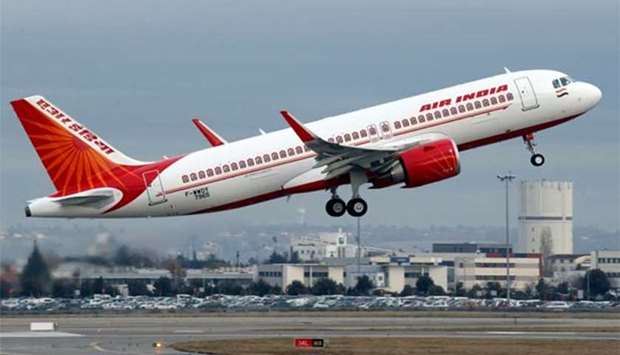* Help on way to cut airline costs - govt official
* Rising costs, low air fares hurt carriers* Capital of $3bn needed to shore up balance sheets - CAPA
* Carriers struggle despite large jump in passenger numbers
India said on Tuesday it was working on a relief package for its airline industry, which is forecast to lose up to $1.9bn this financial year due to rising costs and low fares.
Two of the biggest and oldest carriers, Jet Airways and state-owned Air India, are struggling to stem losses in the world's fastest-growing domestic aviation market, where competition is intense and fuel taxes are high.
Rajiv Nayan Choubey, the top civil aviation bureaucrat, said that help to cut airline costs was on the way along with a planned $120mn capital injection for Air India, according to Reuters affiliate NewsRise.
Choubey, who was speaking on the sidelines of the International Aviation Summit in New Delhi, did not give details of the planned relief package for the industry.
As well as high fuel taxes, Indian airlines are hit by a goods and services tax on maintenance operations that makes domestic work uncompetitive, consulting firm CAPA India said in a report on Monday.
It forecast an industry loss of up to $1.9bn in the financial year ending March 31, up from a January estimate of a loss of $430mn to $460mn, the difference fuelled largely by a weakening rupee and a rise in oil prices.
CAPA estimated that India's airlines, including Air India, need an additional $3bn of capital in the near term to shore up their balance sheets.
Choubey said the government would offer Air India state-guaranteed borrowing worth 21bn rupees ($294mn), along with an equity infusion of 8.6bn rupees.
"If we do not support Air India, there may be a value erosion," NewsRise quoted Choubey as saying.
In June, the government said it had been unable to attract bidders for a 76% stake in the airline.
Cheap market
Indian airlines, which have ordered hundreds of new Airbus SE and Boeing Co jets, have struggled to stay profitable despite filling nearly 90% of seats as domestic passenger numbers have more than doubled over the past four years.
Cut-throat competition has made India one of the world's cheapest domestic airline markets and deals such as $50 one-way tickets on the two-hour flight from Mumbai to Delhi are easy to find.
"While it is easy to find Indian passengers who want to fly, it's very difficult for airlines to make money," said Alexandre de Juniac, director general of the International Air Transport Association.
Jet Airways last month reported a quarterly loss of 13.23bn rupees, saying it aimed to cut costs, inject capital and monetise its frequent flyer programme.
In July, budget carrier IndiGo, the country's largest airline, reported its lowest quarterly profit in three years, with earnings down 97% .
The airlines' woes notwithstanding, India has big plans to improve air connectivity as its economy continues to enjoy fast growth, lifting annual air trips to 1 billion in the next 15-20 years, around five times current levels.
The government also wants to build 100 new airports over the next 10-15 years at a cost of about $60bn, Civil Aviation Minister Suresh Prabhu told the conference on Tuesday. India currently has around 130 airports.
Issues such as land acquisition, however, often delay construction and expansion of airports - and other projects - in India.
The domestic airport in Mumbai, for example, is struggling to keep pace with surging footfalls, and a second airport has yet to be completed despite years in the planning.
"The challenge for us in India is not demand," said junior civil aviation minister Jayant Sinha. "Can we have the infrastructure in place to cater to these billion trips? The challenge is on the supply side."

